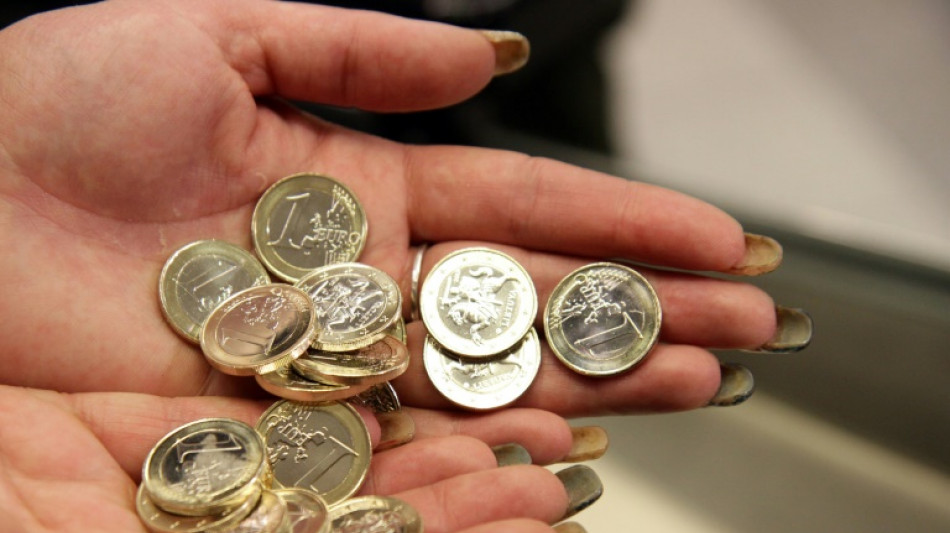
-
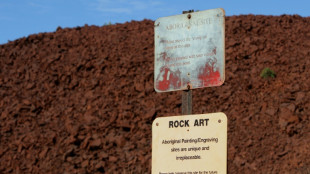 Australia's Aboriginals win bid for UNESCO listing of ancient site
Australia's Aboriginals win bid for UNESCO listing of ancient site
-
Archer strikes on Test return before India's Gill falls cheaply
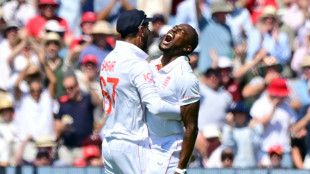
-
 Latest Grok chatbot turns to Musk for some answers
Latest Grok chatbot turns to Musk for some answers
-
Moscow sizzles in record-breaking heatwave
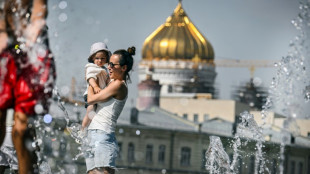
-
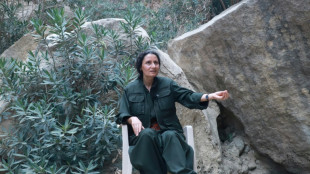 PKK militants want to enter Turkish politics: top commander
PKK militants want to enter Turkish politics: top commander
-
MSF warns acute malnutrition soaring in Gaza
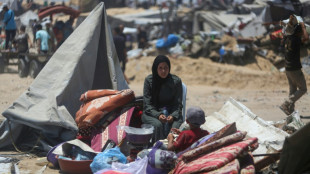
-
 France probes X over claims algorithm enabled 'foreign interference'
France probes X over claims algorithm enabled 'foreign interference'
-
Wimbledon withdrawal 'most painful moment' for Dimitrov
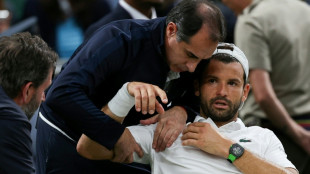
-
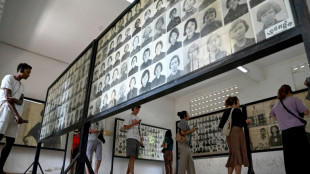 Three Cambodia genocide sites added to UNESCO register
Three Cambodia genocide sites added to UNESCO register
-
Alcaraz reaches third successive Wimbledon final, Djokovic faces Sinner
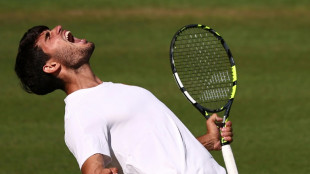
-
 Wildfire forces evacuation of part of Grand Canyon
Wildfire forces evacuation of part of Grand Canyon
-
Crystal Palace demoted to UEFA Conference League for multi-club breach

-
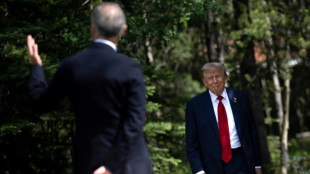 Trump's tariff threats and delays: state of play
Trump's tariff threats and delays: state of play
-
Alcaraz subdues Fritz to reach third successive Wimbledon final
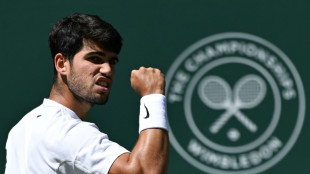
-
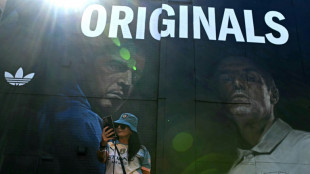 She's Electric: Manchester wired as 'Oasis Day' dawns
She's Electric: Manchester wired as 'Oasis Day' dawns
-
Pogacar pounces to retake Tour de France lead
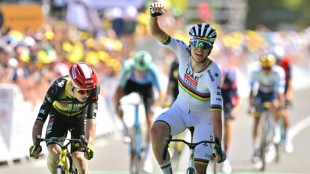
-
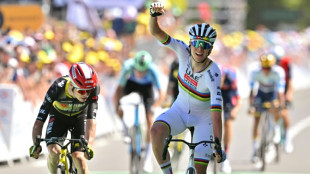 Pogacar pounces to retakes Tour de France lead
Pogacar pounces to retakes Tour de France lead
-
Archer strikes with third ball on Test return against India
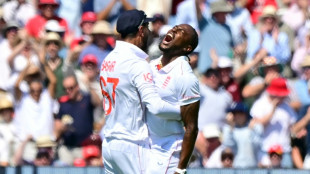
-
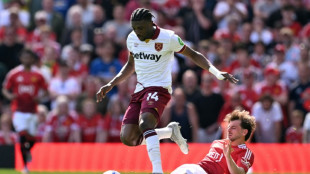 Spurs sign Kudus but Gibbs-White move stalls
Spurs sign Kudus but Gibbs-White move stalls
-
Trump flies to flood-ravaged Texas as scrutiny of response mounts
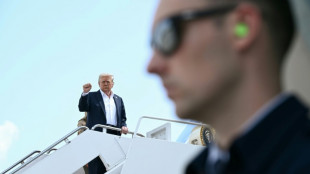
-
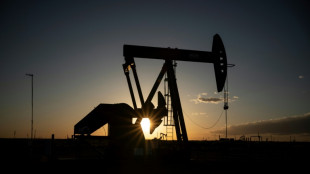 IEA sees anaemic global oil demand growth amid tariff turmoil
IEA sees anaemic global oil demand growth amid tariff turmoil
-
India's Chopra wants coach Zelezny's big-stage mindset
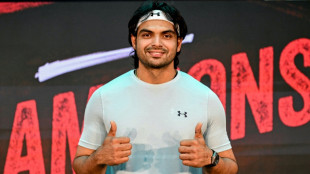
-
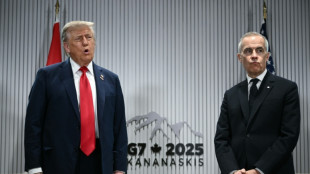 Trump threatens Canada with higher tariff, mulls further global levies
Trump threatens Canada with higher tariff, mulls further global levies
-
Five-star Bumrah strikes for India as England post 387
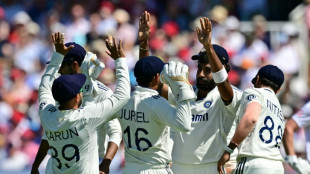
-
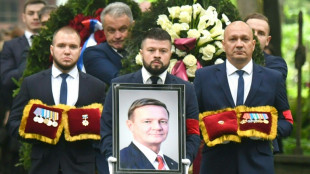 Minister's death spooks Russian elite amid corruption clampdown
Minister's death spooks Russian elite amid corruption clampdown
-
UNESCO adds Cameroon, Malawi sites to heritage list
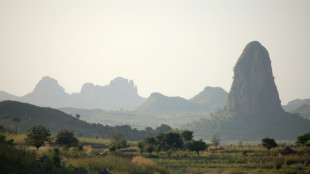
-
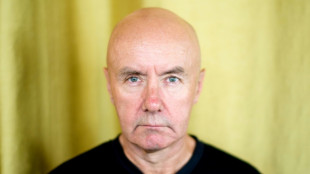 Irvine Welsh takes aim at 'brain atrophying' tech ahead of new Trainspotting sequel
Irvine Welsh takes aim at 'brain atrophying' tech ahead of new Trainspotting sequel
-
Bumrah's treble strike rocks England before Smith hits back
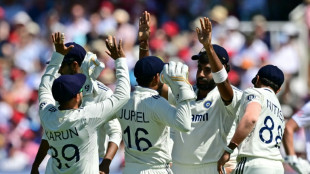
-
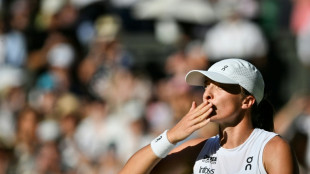 Swiatek and Anisimova battle to be new queen of Wimbledon
Swiatek and Anisimova battle to be new queen of Wimbledon
-
German backpacker found after 12 days missing in Australian bush
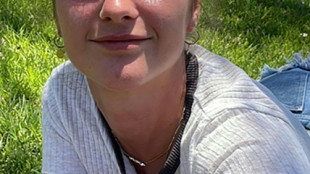
-
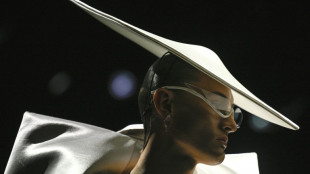 The main moments of Paris Couture Week
The main moments of Paris Couture Week
-
US and China have 'positive' meeting at ASEAN foreign minister talks
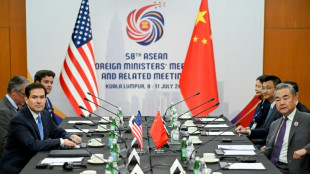
-
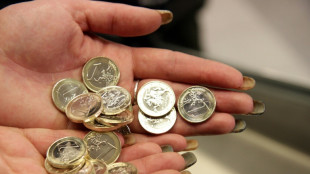 Defence, joint debt and farmers: EU draws budget battle lines
Defence, joint debt and farmers: EU draws budget battle lines
-
US singer Chris Brown denies more charges in UK assault case
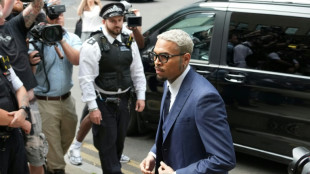
-
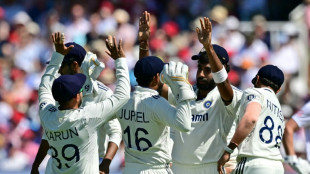 Bumrah's treble strike rocks England in third Test
Bumrah's treble strike rocks England in third Test
-
Liverpool to honour Diogo Jota in return to action at Preston
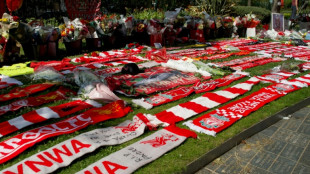
-
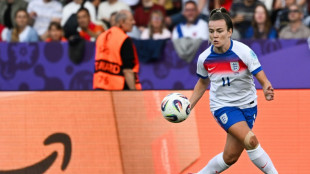 Hemp guards against England complacency in Euros showdown with Wales
Hemp guards against England complacency in Euros showdown with Wales
-
Stocks mostly fall as Trump ramps up tariff threats
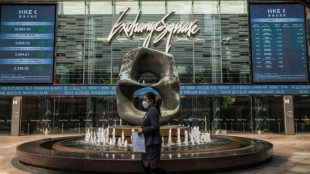
-
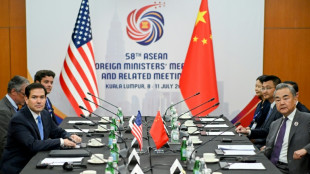 Rubio has 'positive' meeting with China's Wang at ASEAN talks
Rubio has 'positive' meeting with China's Wang at ASEAN talks
-
Australia's Aboriginals ask UNESCO to protect ancient carvings site
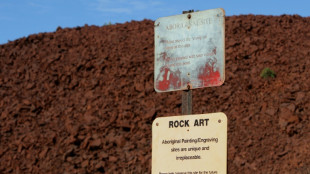
-
 Raudenski: from Homeland Security to Tour de France engine hunter
Raudenski: from Homeland Security to Tour de France engine hunter
-
London's Heathrow eyes higher fees for £10bn upgrade
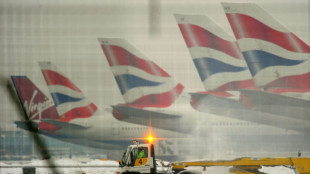
-
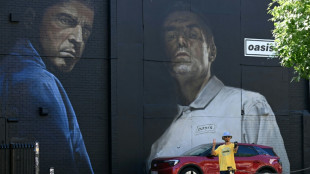 Oasis return reminds world of when Manchester captured cultural zeitgeist
Oasis return reminds world of when Manchester captured cultural zeitgeist
-
EU blasts Russia's latest Ukraine attacks, threatens new sanctions
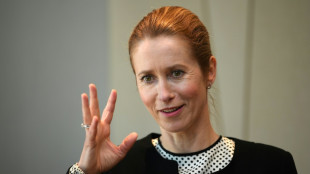
-
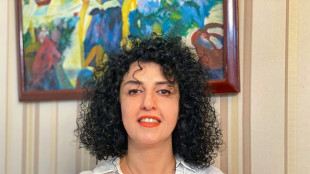 Nobel laureate Mohammadi says Iran issuing death threats
Nobel laureate Mohammadi says Iran issuing death threats
-
Kurdish PKK fighters destroy weapons at key ceremony
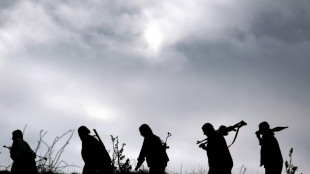
-
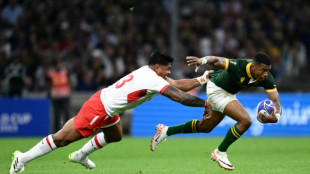 Springbok scrum-half speedster Williams gets chance to impress
Springbok scrum-half speedster Williams gets chance to impress
-
Cambodia to pass laws allowing for citizenship to be stripped
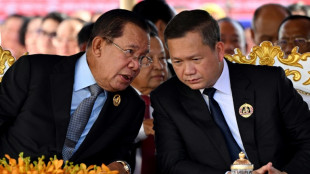
-
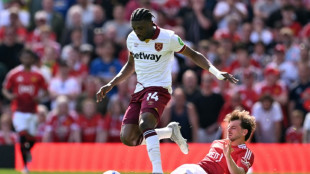 Spurs sign Kudus with Gibbs-White set to follow
Spurs sign Kudus with Gibbs-White set to follow
-
Kiss's combined Aus-NZ side out to 'light up' Lions tour
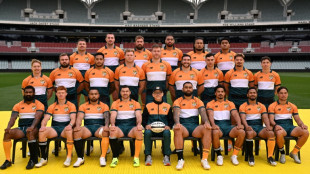

Defence, joint debt and farmers: EU draws budget battle lines
When the European Union unveils its long-term spending proposals next week, it will kick off the bloc's biggest budget battle in recent history.
EU chief Ursula von der Leyen has a mammoth task on her hands: present a budget for 2028-2034 that supports farmers, helps member states ramp up their defence spending, and all while paying back the debts racked up during the covid pandemic.
The European Commission, the bloc's executive arm, will outline the proposals Wednesday, setting the stage for explosive debates with capitals and EU lawmakers over the next two years.
The previous 2021-2027 budget was worth around 1.2 trillion euros ($1.4 trillion) and made up from national contributions -- around one percent of the member states' gross national income -- and money collected by the EU such as customs duties.
The European Parliament has already made it clear it wants more money.
Von der Leyen wants the budget to address the EU's priorities: security, competitiveness and better preparing the 27-country bloc for economic shocks.
But the EU wants to achieve this while reining in ballooning public debts and deficits, and simultaneously bolstering its industries to catch up with rivals in China and the United States.
- Better EU security -
Security will be top of von der Leyen's mind as she makes the finishing touches to the budget with war still raging in Ukraine and fears among member states of a more aggressive Russia.
It is more important given the NATO military alliance last month pledged to spend significantly more on defence -- some five percent of national economic output.
There are 23 EU members in the Western military alliance.
Also under consideration is a 100-billion-euro fund to keep Ukraine afloat, but one EU official said it could change between now and Wednesday.
Von der Leyen this week vowed to support Ukraine "until 2028 and beyond, when the new European budget kicks in".
Under EU treaties, the bloc cannot spend directly on defence, but it can pour money into dual-use infrastructure like bridges that would be critical during a war.
- Supporting farmers -
The EU's common agricultural policy (CAP) -- vast farming subsidies that make up the biggest share of the budget -- will be the subject of fiery debates.
It accounts for nearly a third of the EU's current multi-year budget -- around 387 billion euros, of which 270 billion euros are directly paid to farmers.
The EU is thinking about moving away from subsidies based on farm size -- and putting a cap on how much one farm can get -- which could free up billions of euros.
"There is a growing recognition that its share in the EU budget should decline and I also expect it to decline further," said Zsolt Darvas of Bruegel think tank.
The commission is considering cutting part of the agriculture budget without touching the direct payments, but farmers have made it clear that's a red line.
"I have a tractor and I'm ready," Massimiliano Giansanti, president of Europe's influential Copa farming lobby, raising the spectre of more farmers' protests after months of demonstrations last year by disgruntled European farmers.
Farmers plan to protest Wednesday in front of the commission in Brussels as they seek to pile the pressure on the EU.
Brussels is also looking into whether CAP will keep its dedicated budget or be integrated into wider cohesion funds, with allocations left to member states to decide.
France, whose farmers are the biggest CAP beneficiary, opposes this.
- How to pay for it? -
The big question looming over everything: where will the money for all this come from?
France, Italy and others are pushing for more joint borrowing but that's a no-go for Germany, a major net contributor to the budget, as well as frugal EU states Finland, The Netherlands and Sweden.
One idea put forward has been an instrument that would allow the EU to seek grants or loans in the event of a crisis like the pandemic.
Since some states would fiercely oppose such a measure, an EU diplomat said he had seen the idea appear and disappear from draft texts shared with capitals.
Other options to raise money include a possible digital services levy as well as collecting money from taxes on small packages entering from outside the EU.
The last time the EU took on joint debt was during the pandemic, borrowing around 800 billion euros to rescue the European economy.
Except now the bloc must start paying that money back -- potentially up to 30 billion euros annually -- from 2028.
Q.Bulbul--SF-PST
